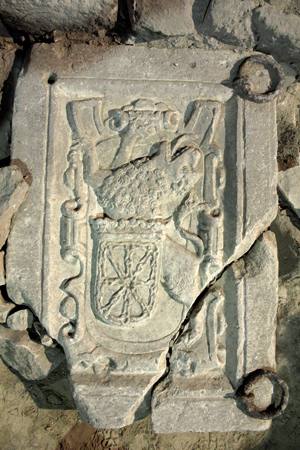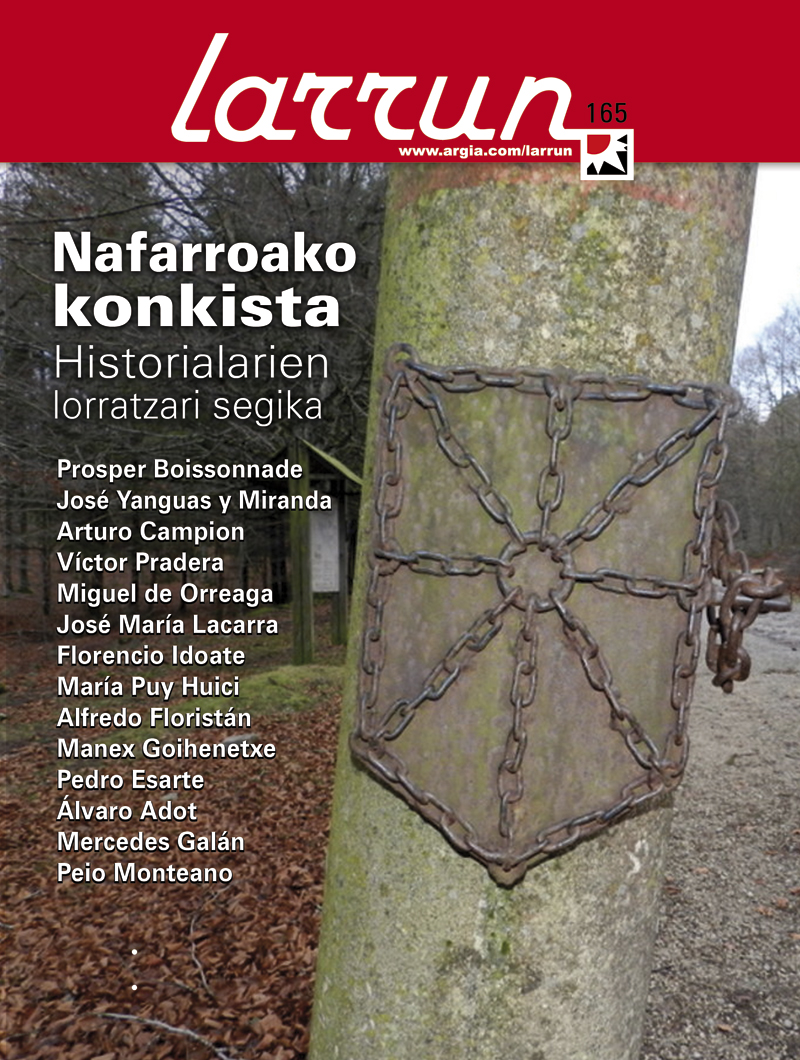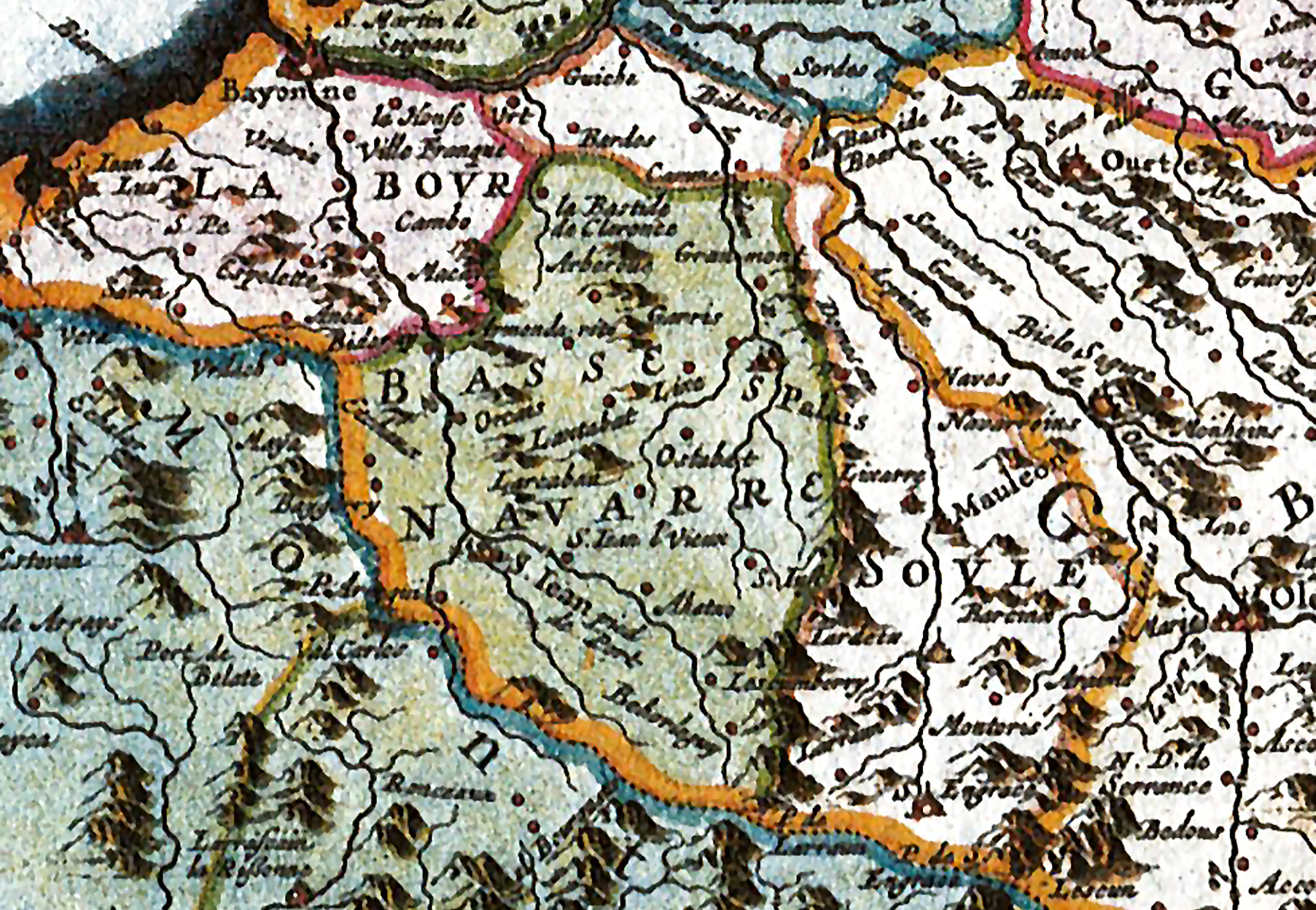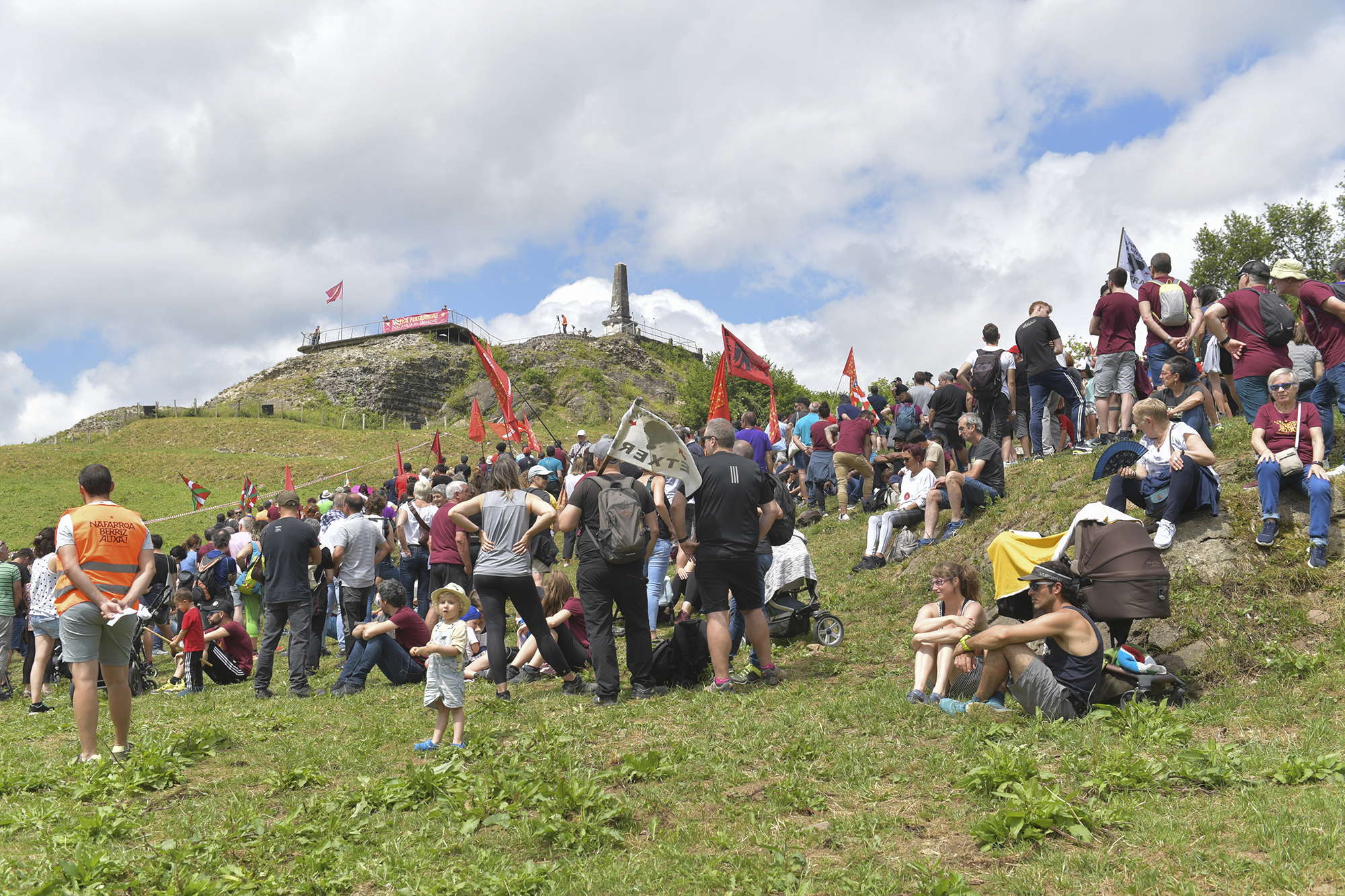"Virrey instead of king, lack of confidence survived."

Florencio Idoate was director of the Archivo General de Navarra from 1966 to 1982. Knowing this information is essential to understand the dimension of his work. He spent his whole life in papers, now writing catalogues, now writing articles about local history. He wrote forty-two books on topics from the Middle Ages to the Contemporary Age and announced many of his ideas in the Carlist newspaper El Pensão Navarro.
Regarding the conquest, he identified with the official hypothesis, but in his writings he qualified this officiality with many nuances, especially through concrete data. In 1981 he wrote the book The War Effort of Navarra in the 16th century by the hand of the Provincial Council of Navarra, the largest on conquest. In it, the viceroy of Spain after the conquest showed his mistrust towards the Navarros with the amount of information found in the documents. That is to say, it turned upside down the official theory that the Navarros approved the new status.
“[Garesko] the citizens complained that the regiment and its bosses were asking for the same treatment and therefore the burden was constantly on them. Many mocked them saying they were ‘petxeroak 11 and laughed’. It seems that the ‘Spaniards’ stayed in the villa since they came to Navarre, according to one of their witnesses. This detail explains how the Spaniards were still strangers to the expensive ones and to the rest of the Navarros. (...)
The systematic lack of trust towards the Navarros is perceived through the papers we have consulted, written by foreign military personnel on this land. (...)
After half a century of castilianisation, foreigners still saw the shadow of the Albret in Navarra. (...)
Virrey rather than king, we are seeing how the sign of the alleged loyalty and lack of confidence imposed on the Navarros was maintained. (...) Independence
will always be remembered as resignation for sentimental and practical reasons, but in some cases, the passage of the years will end the elimination of that legitimate homeland, the generation that knew the passage from an independent kingdom to a dependent one. However, the noble class, the leaders, try to adapt to the new time, which will be definitive, irreversible, only the memory will remain.”
Immersed in the war against the community lords and churches, in 1521, Castile obtained the help of his brother-in-law Enrique de Navarra II.ak, King Francisco I of France, to recover the kingdom of Navarre invaded, conquered and occupied nine years earlier.
Parents Enrike... [+]
Memoria eta aldarrikapen eguna izan da larunbatean Amikuzeko hiriburuan. "Sekulan baino gehiago, gure izanetik aurkitu indarraz, bihar gu girena hazi", izan dira Zabalik elkarteko presidentearen hitzak, Nafarroa Bizirik eguneko ekitaldi ofizialean.
The ideological heirs of the conquerors of the Kingdom of Navarra are today the political parties that manage means such as patriarchal intellectual production and EITB. These heirs continue with the colonization process of Navarre, distorting historical contexts and negating... [+]
The castle of Amaiur (1522), in Baztán, was the last strength of the resistance against the Spanish conquest of the Kingdom of Navarra. The rebels, with their courage, also dominated the kingdom of Spain, challenged by their hearts, sought to rise up against the... [+]
You will easily see Spaniards of a certain age who want to underestimate or reduce the severity of something: “More was lost in Cuba,” recalling the loss of the remains of the colonial empire in 1898. Hungarians also have a similar expression, which is used in the same sense... [+]




















